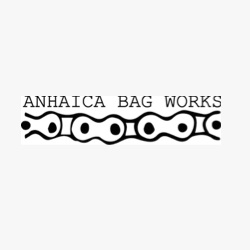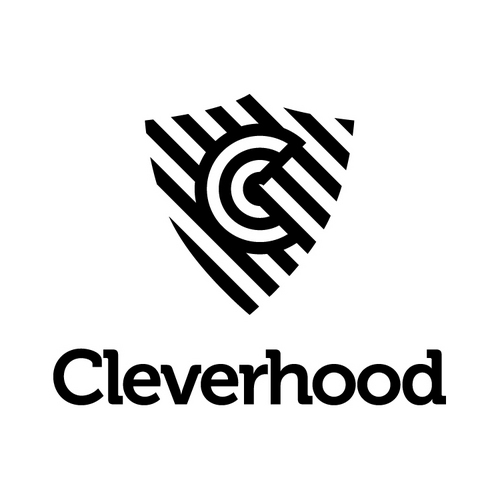Sometimes you can get away with not really planning anything, and your travels will work out anyway. If you've checked out our About page, you will see that Travis has given himself the title Photographer/Planner, which is totally true. So I get to blame him if trips go wrong because of planning. Girlfriend WIN.
We had been looking forward to November for a long time. Travis and I are both farmers, and not just farmers but community organizers around food issues. And since we both live in Florida, October is a huge month for us. It's the busiest month of the fall growing season, AND there are myriad community events in both Tallahassee and Gainesville. What I was looking forward to was the weekend after my two week work marathon, during which I worked every day. We had set aside that weekend in November to canoe camp on the Suwannee River, with a four day epic trip. Welllll that didn't really happen but we did still have some epic moments.
We really meant to get off to a good start. Except the night before we didn't get done socializing until 1am... and the next day we woke up late and still had packing and shopping to do... so we started canoeing at 4 pm. As the sun was going down. But whatever. Sometimes you just get too busy to plan everything perfectly and you just do your best, and most of the time that's enough.
The Suwannee River is a Florida icon. The song is the obvious reason for that: Stephen Foster's "Old Folks at Home" is Florida's State Song, and most of us learned the first verse and chorus growing up (Way down upon the Suwannee River, far far away...). There's a reason we stuck to the first verse, because the rest of the original lyrics are EXTREMELY problematic-- the song was written for a blackface minstrel group in New York. Also, Foster never saw the Suwannee, nor did he ever even visit Florida, he just liked the way Suwannee sounded in the lyrics. So, like many parts of our terrible history that we've glossed over and continue to celebrate, "Old Folks at Home" remains with us, we just ignore the bad parts.
The Suwannee River, however, is not terrible. It is great. Its source is the Okefenokee Swamp in Southern Georgia, which sprawls over 438,000 acres. Most of the water accumulated there eventually ends up in the Gulf of Mexico, and the Suwannee River is one of the ways it travels there. Its also one of the few major rivers in the US that hasn't been dammed up and still flows as it has for thousands of years.
In addition to the Okefenokee, the Suwannee is also fed by hundreds of springs along the way, which gurgle up to the surface from the Floridan Aquifer. 150 billion gallons of rain fall in Florida every day, and a lot of that ends up in the aquifer-- a system of underground rivers that flow through the porous limestone under our feet. The aquifer is closest to the ground surface in North Central Florida, which is why there are more springs there than any other part of the state.
We get our drinking water from the aquifer. We use 7 billion gallons of water a day in Florida, and not just for drinking. One of the more depressing facts I learned while researching this is that nearly 50% of the water designated for public use goes to watering our lawns. It's 900 million gallons a day. That makes my blood boil. Our aquifer is being overpumped, and the springs are paying for it. Many springs around the state are turning saline, which is bad news for the ecosystems, obviously, but also for the humans who rely on that water to live. Each Floridian uses an average of 150 gallons of water per day, 50 gallons more than other Americans. Turn off those lawn sprinklers, folks. We're going to have a very real water crisis on our hands in the next few decades.
Farming and industry use up a large portion of those 7 billion gallons, like the PotashCorps phosphate mine in White Springs that was built in the 70s. White Springs was the launch point of our journey, and it was also Florida's very first tourist destination. From the 1880s-1930s, the sulfur water gushing out of the springs was touted as a cure all, from nervous disorders to indigestion. Thousands of Northern tourists stayed at White Springs' 14 luxury hotels, and a four-story bath house was built around the spring for greater access. Now, the spring doesn't release any water at all, except after a heavy rain. It's a ruin of what it once was, and it's a lesson for what's to become of our water future.
Photo from the Tampa Tribune
All that being said, it just makes the magic of the springs that much more precious. Sometimes springs are the head of a river, like the Wakulla or the Ichetucknee-- pumping out millions of gallons of water enough to feed a flow all the way to the ocean. Sometimes, springs pop up in the middle of the woods where the limestone below the ground has been eroded away by the flow of the aquifer, and a sinkhole opens up. This is one of the most incredible sights in Florida: after walking through the woods for a half hour, you come up on a clearing with a clear blue gem at the center, full of fresh, clear, cold water to swim in.
From another Suwannee trip Travis took earlier in the Fall with his roommate Brian
Sometimes, the spring bubbles up right alongside a river, and that's how it is with the Suwannee. There are 197 springs that feed the Suwannee during its 245 mile journey from Georgia to the Gulf. The treat of coming across one down the river means discovering a bright blue swimming hole with water gushing out, in contrast to the dark, tannic waters of the easy-going river. The water pressure is surreal-- the invisible force of the water pumping pushes you out into the main flow of the river. Definitely have to tie up your canoe.
Canoe camping is different from other camping because you have the added difficulty of figuring out how to connect your boat with your vehicle when you are ready to go home. We decided to bring bikes in the truck and park them at Suwannee Springs, our end destination, where we would tie up the canoe and then bike back to the start where we left the truck. Well, that was the plan anyway.
It was when we finally reached the rivers' edge, lowered the canoe from off the truck and emptied the truck of our camping gear, that Travis realized that he had forgotten his bag of clothes. It was supposed to get down in the 40s. Well. At least that justified a trip into the gift shop at the Stephen Foster Folk Cultural Center State Park, which was full up of cheesy country crafts and T-shirts but no sweatshirts. Luckily I brought two jackets and we are roughly the same size. We scurried back to the canoe to finally start paddling, cracked open some Jai alai IPAs, and watched the waning sunlight filter through the trees.
The Suwannee marks the prehistoric boundary where the Florida peninsula was cut off from the Panhandle to form an island. The woods surrounding the river are typical hardwoods, but the embankment is white sugar sand, a leftover from the area's underwater days. This makes for easy camping, and so after a few river bends we pulled over on a flat sandy shore to get started cooking before dark.
We're pros at setting up camp now, after doing it almost every night for a month during our last extended trip. We can do it almost wordlessly. We got to gathering firewood, which was abundant with all the dried fallen saplings scattered along the rivers' edge. Soon we had a nice little fire crackling, and we had the treat of real campfire food-- baked beans and hot dogs. I really love baked beans and hot dogs. It was basically perfect. The weather was cool but not freezing, somehow there were no mosquitoes, and just enough Florida fall color was showing in the cypresses. And it's all just an hour from Travis' house, that's the most amazing part.
During his excursion into the gift shop back at the park, the historian in Travis couldn't help but purchase some light reading for the evening: Cracker Culture in Florida History by Dana M. Ste. Claire. He read it aloud to me while I tended the fire. As dry and academic as the writing was, the riotous content made up for it. "Cracker" is a term that has been used to describe poor whites for a couple hundred years, specifically in Georgia and Florida. Though the exact definition of a cracker is hard to pin down, what we are clear on is that everyone hated them. "quote" Coming from Scottish and Irish stock, crackers roamed the far reaches of the Florida wilderness, building homesteads without inquiring who owned the land they built their houses on, drank whiskey with enthusiasm, and settled skirmishes with duels. They probably had the best parties in the state. Also, a really great beer is named after them. It's a white ale. Get it??
We woke up later than we should have the next morning, but it's hard to want to stay on a schedule on a Sunday. It usually takes about an hour to wake up, eat breakfast, and pack, so we were on the river by 10:30am. Let the paddling begin!
This part of the river was so rad. We would come around the bend and it looked totally different. Some parts were typical Florida riverside, with overhanging trees and knotted vines. In one section the embankment was totally worn away to expose the bare, holey limestone underneath. There were little creeks rushing down to meet the main river, and we parked the canoe a couple of times to follow them upstream for a bit. I couldn't have asked for more perfect weather.
At lunch, reality set in that we had started canoeing way too late to make it back to where we parked our bikes before dark. We stopped off to eat at one of the many canoe campsites along the river, and called American Canoe Adventures outfitter back in White Springs. Luckily, he could pick us up at Suwannee Springs right before sunset and bring us back to the truck. This is one more reason we should be thankful when the Technology Gods make up for poor planning. We would have been screwed without our cell phones.
So next time, we'll know. If you're planning an epic weekend, pick a solid plan. Make sure you have all your gear. Don't underestimate how long traveling takes, either by bike or by water. Wake up early. Charge your cell phone. I'm stoked to try canoe camping again-- that was my first time after all. AND, after this trip we know how easily it is to factor in canoeing to our 2014 bike tour on the West Coast. The packing and gear are identical, and if we hire an outfitter to bring us our bikes when they come to pick up the rented canoe, we won't lose any mileage.
So Willamette River, here we come!















